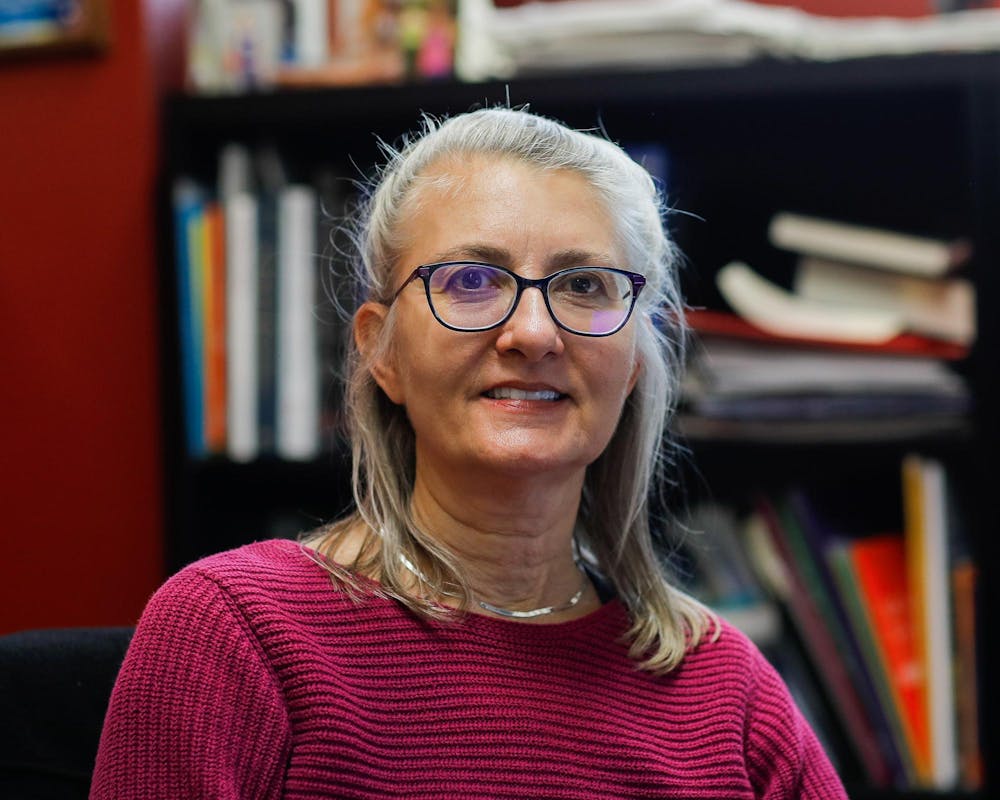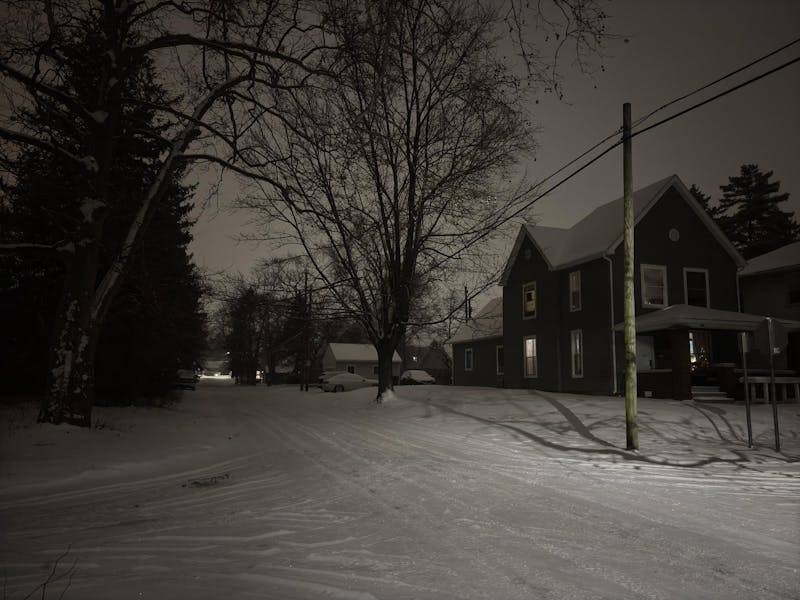Editor’s note: Second-year journalism major and News Editor Katherine Hill is not related to her source, Nathan Hill, a graduating media production undergrad student at Ball State University.
It’s been almost five years since the COVID-19 pandemic first made headlines and shut down communities across the globe. Students who were on the tail end of their high school careers in 2019 — like Nathan Hill, a media production undergraduate student at Ball State University — are now graduating college.
As Hill prepares to walk across the stage during commencement in December, he said the reality of adulthood has become all too apparent, nearly diminishing his celebratory affiliation with graduation.
“I feel like I’m being thrown to the wild,” Hill said via text.
According to a 2016 study from the Pew Research Center, 32 percent of young adults aged 18-34 live with their parents, and 19 percent are college-educated.
Hill, who is currently living in an apartment with roommates to help ease the burden of rent expenses, has “no clue” what his living situation will look like after his impending graduation.
Dagney Faulk, director of research for the Center for Business and Economic Research at Ball State, said Hill’s situation is not out of the ordinary, as most college-aged students live in rental housing.
“Students [who] are graduating now, they're in a circumstance where we've come out of a pandemic, [and] there's been a major economic shock as the country came out of the [COVID-19] pandemic,” Faulk said.
Faulk said the housing market was largely impacted by the pandemic because the cost of architectural materials, like wood and steel, increased — simultaneously enabling the cost of building homes to “dramatically increase.”
Dan Royer, assistant lecturer of accounting at Ball State, said the pandemic caused an “economic shock,” especially for populations like students.
“Before COVID[-19], we were pretty comfortable in our trajectory, but [it] had an impact on that in that it shut things down for a while, and it caused a real problem with supply chain issues,” Royer said.
Royer cited the logistic principles of the supply and demand curve to explain why such “supply chain issues” have proven to have adverse effects, even if these effects didn't immediately follow the pandemic.
“The ability to stay home and not spend money traveling or commuting to and from work made us spend a little more at the store than what we used to, and prices were not affected at that point,” he said.
However, the demand for housing brought on by the pandemic differs from Faulk’s so-called “housing price bubble burst” of the 2008 Great Recession.
“In 2008, there was a lot of demand for housing [to be built], there were elevated prices, and then the bubble burst,” she said. “When that happened, a lot of people owed more on their mortgage than their house was worth.”

Royer said that although the two time periods are commonly correlated, they are not the same.
“Post-COVID is almost the reversal of [the 2008 Recession] because we’ve seen demand in housing spike and prices have jumped,” he said.
According to composite data gathered by the Missouri Economic Research and Information Center in 2024, Indiana has the 10-lowest cost of living in the nation, with the average cost for an individual continually being around $42,697, according to the U.S. Bureau of Economic Analytics in 2021.
Even in conjunction with the vast selection of rental complexes available in Muncie, Faulk said, “Students don’t necessarily want to stay in Muncie. They want to move on to Chicago, Indianapolis or somewhere big.”
Despite the current uncertainties of his living environment, Hill’s path toward winter graduation — which “happened by accident” due to the layout of his schedule— has him excited about the available employment opportunities as he launches his career.
The U.S. Bureau of Labor Statistics reported about 109,500 annual openings in media and communication occupations are projected between 2023 and 2033.
Royer, who got an early start in the financial world working for 15 years as a Medicare auditor for Blue Cross Blue Shield, said he has learned fiscally responsible behaviors throughout his career, most of which he wishes he had known when he was a younger, college-aged student.
“One of the things I think is most important about finance is not to waste time not knowing what to do,” he said.
Teaching students not to make similar mistakes is a driving force behind Royer’s teaching motivations.
“I think it's very valuable for students at the college level to be aware of financial planning and financial issues and to take those into consideration as [they] graduate and start a career. It's vital to be able to start out well and be able to understand finance from the beginning of your career,” Royer said.
Royer advised younger generations and recent graduating students — who may be browsing the housing market and assessing their five-year plans — to be aware of predatory lending practices.
“The home market is pretty tight right now… [and] there are opportunities for people [to] scam and take advantage of others. It pays to be cautious right now. It’s unfortunate, but that is something you have to guard against,” he said.
When looking for a place to live, Royer also advised students to embrace all options openly and “think beyond” the cookie-cutter idea of obtaining the traditional one-family home, no matter if it means renting, living with roommates, or purchasing a tiny house or container home.
“Being able to find a place [to live] for a reasonable price is one of the biggest challenges right now,” he said.
Here in Muncie, there are opportunities for non-traditional living, most notably ecoREHAB.
Royer, who works closely with the not-for-profit, said the organization acquires homes through the land bank in Muncie and renovates them in partnerships with the Muncie Parks Department, Ball State students and YouthBuild Muncie.
Even though such opportunities exist to ease living transitions from student age to adulthood, growing pains are inevitable.
“The world is falling apart around me,” Hill said.
Contact Katherine Hill via email at katherine.hill@bsu.edu.





The Daily News welcomes thoughtful discussion on all of our stories, but please keep comments civil and on-topic. Read our full guidelines here.